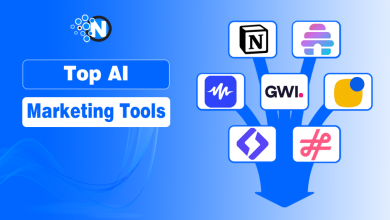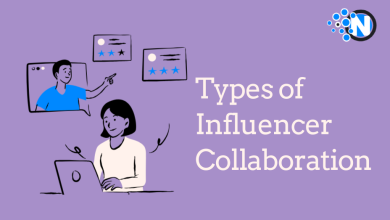Marketing and Digital Marketing: How Brands Connect, Grow and Stay Relevant

Marketing is one of those things people recognise instinctively, even if they don’t always define it the same way. For some, it’s an advert on TV. For others, it’s the emails that land in their inbox, the Instagram post that leads them to a new brand, or the sponsored podcast segment that catches their interest on the commute home. At its simplest, marketing is how businesses communicate with people, build relationships, and persuade them to take action.
That hasn’t changed. What has changed, dramatically, is how that communication happens. In just a few decades, marketing has evolved from a mostly one-way broadcast to a constantly shifting two-way interaction. And now, with digital channels dominating how people consume information, the line between traditional marketing and digital marketing continues to blur.
In this blog post, I will explain how marketing works, how digital strategies have transformed the field, and how niche services like a sports PR agency use a mix of both to help clients stay visible and trusted.
Let’s start!
Understanding the Role of Marketing
Marketing is about finding the right audience for a product or service and giving them a reason to care. It can include market research, branding, pricing strategies and customer service. Good marketing will do more than just get attention, it will build a sense of trust. It helps people make decisions and more importantly, it helps them feel confident in those decisions.
Every successful marketing strategy starts with understanding the audience. What do they need? What are they struggling with? What makes them stop scrolling or take a second look at something? These aren’t just questions for huge multinational companies. Small businesses, local brands, and specialist agencies ask them too, because no matter the size of the organisation, the goal is the same — to connect with real people in meaningful ways.

Traditional Marketing Still Has a Place
Even with the dominance of online platforms. Leaflets, radio ads, billboards, event sponsorships, and face-to-face networking can all be incredibly effective. In specific industries, physical presence and offline reputation still influence buyer behaviour.
For example, a local gym might get excellent results from sponsoring a community event or running a print campaign in a neighbourhood magazine. A sports PR agency might organise media days around high-profile signing or launch. These activities generate excitement in ways that can’t always be captured through a screen.
The Shift to Digital Marketing
While traditional marketing focuses on offline channels, digital marketing happens online and the difference is more than just location. Digital campaigns are often more targeted and easier to adapt as things change.
Digital marketing covers a wide range of methods which are as follows:
- Creating content that ranks well in search engines
- Running paid ad campaigns on platforms like Google or Facebook
- Sending regular emails to subscribers or past customers
- Sharing updates on social media
- Using videos/podcasts and live streams to educate or entertain
- Analysing data to understand what’s working and what’s not
Unlike a printed brochure or a 30-second radio slot, digital content can be tweaked in real time. Traditional marketing can be expensive and time-consuming; this is where digital marketing differs, as it is cost-effective and can be tweaked in minutes.
Marketing and Digital Marketing – How They Work Together
Rather than choosing one over the other, many organisations use both traditional and digital methods as part of an integrated strategy. A product launch could include any of the following: influencer partnerships, a press release in industry media, a series of social posts, and a local event. Each element supports the others, increasing reach and reinforcing the message.
For a sports PR agency, this is particularly important. High-performance athletes, teams, and brands often operate across multiple channels. A successful campaign uses a number of different strategies with the goal of managing reputation and shaping public perception.

Why Digital Matters More Than Ever
As people spend more time on their devices, digital marketing continues to grow in importance. Whatever you’re doing online, brands will always show up in helpful, relevant ways that tend to win attention and trust.
What makes digital marketing so effective is the ability to measure it. Platforms give you detailed insights into who’s clicking, what they’re engaging with, and how far along the buying journey they are. That data helps marketers make better decisions. It allows them to personalise content, retarget ads, and create user experiences that feel tailored rather than generic.
Another key benefit is accessibility. As a small business, it isn’t always impossible to compete with big companies, with the right strategies, it is more than possible.
The Importance of Strategy
The most successful marketing efforts don’t happen by accident. They’re built on clear objectives, a deep understanding of the audience and a strategy that combines creativity with practicality.
It’s not just about being everywhere at once. Digital marketing is about showing up in the right places with the right message. This could mean focusing on SEO to help drive long-term traffic to your website. You could also involve running a seasonal campaign that taps into cultural moments. For a sports PR agency, their strategy could centre around event-driven promotion.
Without a strategy, marketing quickly becomes noisy or inconsistent. But with one, it becomes a powerful tool for growth, loyalty, and reputation.
Trust and Authenticity Matter
People are becoming more selective about who they trust, which means Authenticity counts.
That means being honest in your messaging and delivering on promises. It also means listening to feedback and responding with humility. Brands that treat their audience like a community tend to create more lasting connections.
Final Thoughts
Marketing requires creativity and a willingness to experiment, but it also relies on data and structure. With technology and habits continuing to change, the best marketers are the ones who stay curious. For businesses in specialist fields such as a sports PR agency managing athletes and events, there needs to be a balance between traditional presence and digital reach is especially important. The tools may evolve but the goal remains the same, to communicate clearly and create something that people remember.




